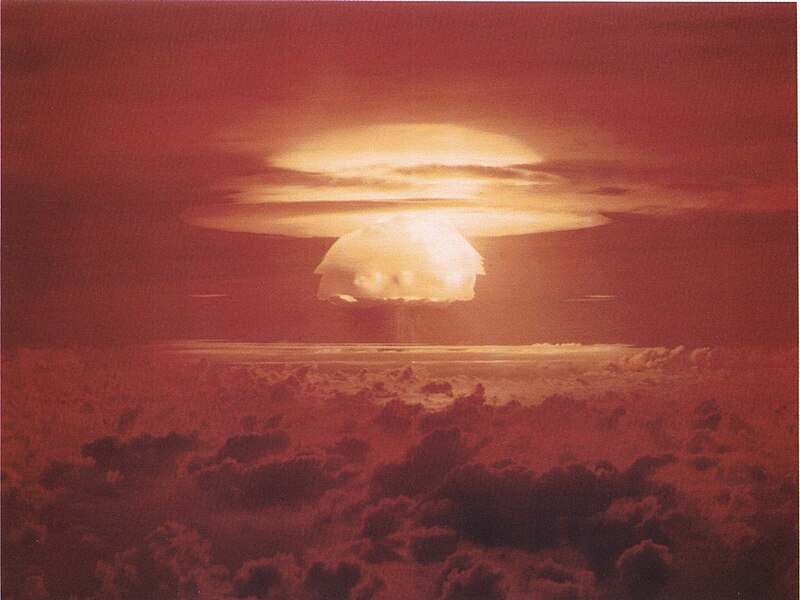NEW PUBLICATION: “We’re Taking Back the Narrative”. An Interview with Benetick Kabua Maddison, of the Marshallese Educational Initiative

By Julian Schäfer. Since the film ‘Oppenheimer’ at the latest, nuclear weapons and their eminent dangers have once again become the focus of public attention. The film impressively demonstrates the almost unimaginably destructive effects of even a comparatively small nuclear weapon such as ‘the Gadget’.
However, the film barely touches on the devastating long-term effects that weapons of this kind have on the people and environment affected. After the Second World War, the United States of America carried out 67 nuclear tests in the Republic of the Marshall Islands over a period of 12 years and thus created a lasting nuclear largely. These included “Castle Bravo”, the most powerful test of a thermonuclear device by the US, with an explosion equivalent to 1,000 of the bombs dropped on Hiroshima.
To this day, these tests have had a lasting impact on the Marshallese environment and people, causing environmental degradation and intergenerational health problems for the local population.
In a new publication, Linda Ostermann and Julian Schäfer conducted an interview with Benetick Kabua Maddison, Executive Director of the Marshallese Educational Initiative.
The NGO aims to raise awareness of the effects of nuclear testing and climate change in the Republic of the Marshall Islands (RMI). In the interview, Maddison discusses the Compact of Free Association (COFA) between the RMI and the US, which governs their political and economic relationship and advocates for a new COFA based on trust, accountability, and transparency that addresses the nuclear legacy. Furthermore, Maddison criticizes the portrayal of nuclear testing as a contribution to security, highlights the humanitarian and environmental neglect, and stresses the importance of education and global solidarity to achieve nuclear justice and address the cultural consequences of nuclear testing.
The interview was published in “Peace Review: A Journal of Social Justice” under the guest editorship Leonardo Bandarra and Patrícia Nabuco Martuscelli.
